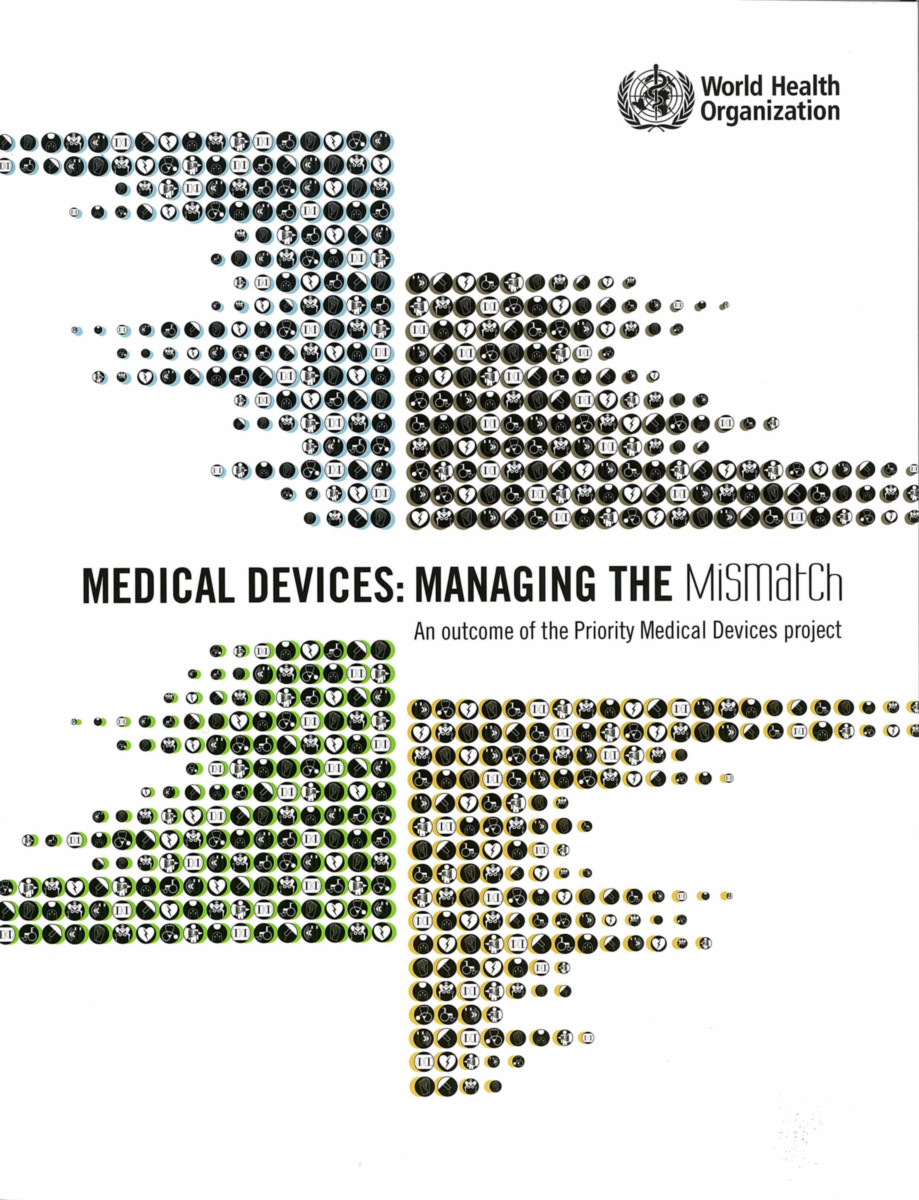Medical Devices
Managing the Mismatch
An Outcome of the Priority Medical Devices Project- Publisher
World Health Organization - Published
7th December 2010 - ISBN 9789241564045
- Language English
- Pages 143 pp.
- Size 6.5" x 9.75"
Choosing a medical device is complex and requires a transparent process based on reason, evidence and assessment of prioritized public health needs. Poor choices lead to inappropriate use or non-use of medical devices and a waste of resources.
This report suggests how an agenda to improve access to appropriate medical devices could be devised from applying the crucial 4 components—Availability, Accessibility, Appropriateness, and Affordability—to the 15 global high-burden diseases and some cross-cutting issues. The results of this exercise suggest several areas of research necessary to help make medical devices more available, accessible, appropriate, and affordable.
Examples include: development of a kit containing simple and affordable technologies for measuring blood pressure, blood glucose and cholesterol levels, which could assess cardiovascular risk; developing portable, affordable spirometry equipment for accurate diagnosis and prognosis of chronic obstructive pulmonary disease (COPD) or asthma in low-resource settings; and the development of more appropriate hearing aids which could potentially help people with hearing impairments whatever their age or setting. An example of a key cross-cutting issue is the need to develop simple, affordable, and reliable sensitivity tests for bacterial and viral antigens. Such tests could replace culture systems to detect the presence of pathogens and effectively and efficiently help to diagnose many high-burden infections and neglected tropical diseases.
The Priority Medical Devices (PMD) project applied the "4 A" questions to some examples of identified key medical devices to further explore the downstream issues associated with poor access to appropriate medical devices.
The PMD project hopes all players in the medical device arena can collectively use the findings of this report to help make public health a central focus of their activities, along with the work on policies, tools and innovations of the WHO Global Initiative for Health Technologies.
World Health Organization
World Health Organization is a Specialized Agency of the United Nations, charged to act as the world's directing and coordinating authority on questions of human health. It is responsible for providing leadership on global health matters, shaping the health research agenda, setting norms and standards, articulating evidence-based policy options, providing technical support to countries, and monitoring and assessing health trends.


